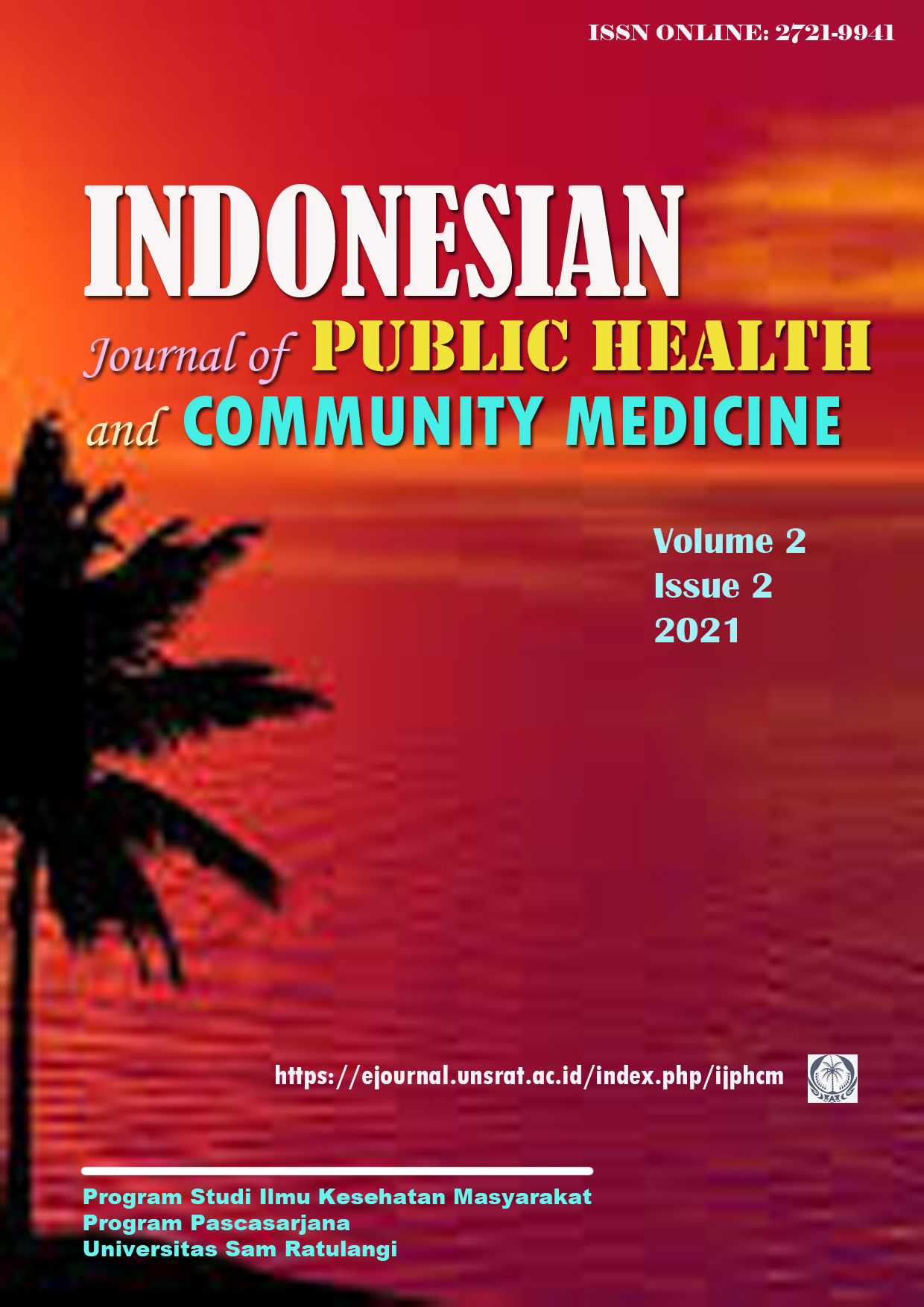Aspek Nonfarmakologis Pengobatan Albendazol Pada Cacingan: Review Sistematis
DOI:
https://doi.org/10.35801/ijphcm.v2i2.34540Keywords:
Nonfarmacological aspects, albendazole, intestinal wormsAbstract
Background: Treatment efforts with albendazole have been implemented for a long time but intestinal worms are still a problem in Indonesia and even in the world, there are aspects or non-pharmacological factors that affect the treatment of intestinal worms with albendazole. The purpose of this study was to determine the nonpharmacological aspects of albendazole treatment in intestinal worms. Method: This research is a systematic review. Sources of research articles were taken from the PubMed database, Science direct, Wiley online library and Google scholar, with the keywords "worms" or "helminthiases" or "soil transmitted helminthes" and "albendazole" or "albendazole" and "drug adherence" or " drug compliance†and “nutrition†or “nutritional†and “age†or “age†and “gender†or “sex†and “environment†or “sanitationâ€. A total of 6,322 articles were obtained from the initial search and from all these articles, 4 articles were found that met the criteria for analysis. The literature search was carried out in February-March 2021. The article selection process was in accordance with the guidelines from the Preferred Reporting Item for Systematic Reviews and Meta-Analysis (PRISMA). Results: A total of 6,322 articles were obtained from an electronic search by searching the PubMed database, Wiley on library and Science Direct as many as 592 articles and 5730 articles found through additional searches from Google Scholar. After screening by title, abstract and fulltext, 4 articles were found that were carried out in Asia (1 study) and in Africa (3 studies). The non-pharmacological aspects found were one study for drinking adherence factors, 1 study on nutritional factors, age and sex factors simultaneously and 2 articles related to environmental factors. Conclusion: This study conclude that four non-pharmacological aspects that affect the medication of albendazole in intestinal worms. There are medication adherence, nutrition, age and gender, and environmental factors. Therefore, it is necessary to conduct further research to see the relationship between compliance, nutrition, age, gender and environmental factors.
References
Aini, E. N., Isnaini, I., Sukamti, S., & Amalia, L. N. (2018). Pengaruh Tingkat Pendidikan Terhadap Tingkat Kesejahteraan Masyarakat di Kelurahan Kesatrian Kota Malang.Technomedia Journal. 3(1): 58-72.
Akinsanya, B., Taiwo, A., Adedamola, M., & Okonofua, C. (2021). Aninvestigation on the epidemiology and risk factors associated with soil-transmitted helminth infections in Ijebu East Local Government Area, Ogun State, Nigeria. Scientific African. e00757.
Aliviyanti, R.U.Y. 2014. Faktor Penting dalam Keberhasilan Terapi (online) diakses dari https://uad.ac.id/id/kepatuhan-pasien-faktor-penting-dalam-keberhasilan-terapi/. Diakses pada tanggal 3 November 2020
Anderson, G. D. (2008). Gender differences in pharmacological response. International review of neurobiology. 83:1-10.
Baker, J. M., Trinies, V., Bronzan, R. N., Dorkenoo, A. M., Garn, J. V., Sognikin, S., & Freeman, M. C. (2018). The associations between water and sanitation and hookworm infection using cross-sectional data from Togo's national deworming program. PLoS neglected tropical diseases. 12(3), e0006374.
Bulu, A., Wahyuni, T. D., & Sutriningsih, A. (2019). Hubungan Antara Tingkat Kepatuhan Minum Obat dengan Kadar Gula Darah pada Pasien Diabetes Melitus Tipe II. Nursing News: Jurnal Ilmiah Keperawatan. 4(1).

